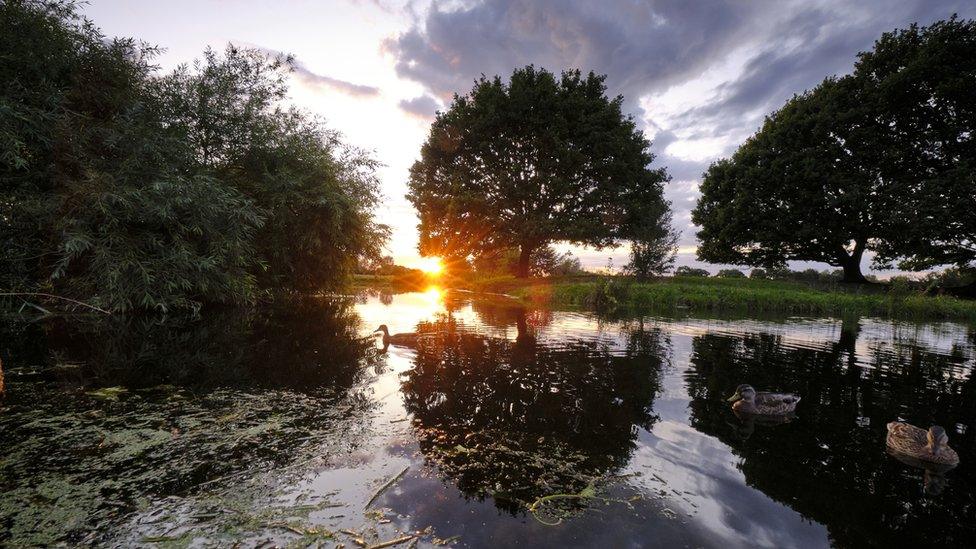Ralph Fiennes adds voice to campaign against 112-mile pylons route
- Published
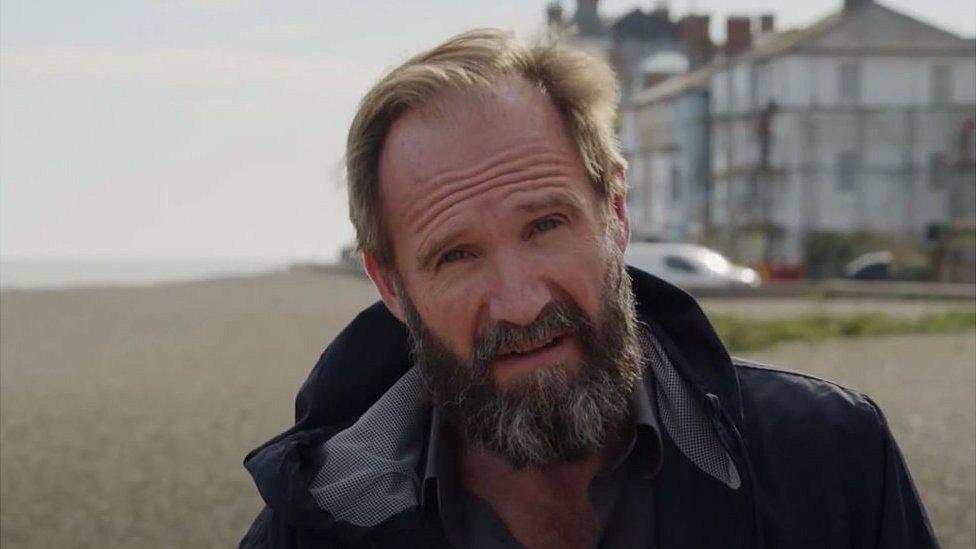
Ralph Fiennes said his childhood memories of Suffolk's swathe of beaches were "soaked into my consciousness"
Hollywood actor Ralph Fiennes has made a film campaigning against plans to install electricity hubs and pylons across the area where he grew up.
The Suffolk-born star created the four-minute film to back Suffolk Energy Action Solutions' (SEAS) call to build an offshore grid.
"The environmental legacy of any government is at stake," he said.
However, National Grid has disputed Fiennes' claims that an offshore solution would be cheaper.
Fiennes' four-minute film, external, called Coast, was launched on Tuesday alongside a SEAS nationwide petition to stop the current plans and push for a parliamentary debate.
Opening with black-and-white footage of Fiennes as a toddler playing on Covehithe beach, the actor told how his father was a farmer in nearby Wangford.
He spoke out against "creating acres of steel and concrete in areas of profound natural beauty".
Fiennes, known for his role as Voldemort in the Harry Potter franchise, said: "[National Grid's] proposals involve a complex of electrical infrastructure with landfall at Aldeburgh, Walberswick, Southwold towards two vast electrical hubs, built inland destroying many acres of heathland and habitat, coastline and wetland irreversibly."
He also said neighbouring North Sea-sharing countries had harnessed wind power through integrated offshore networks.
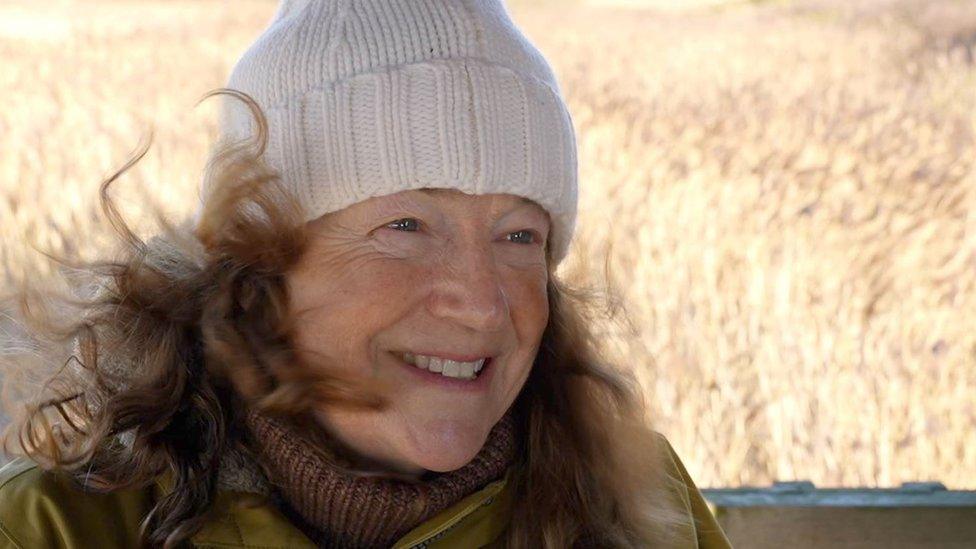
Suffolk Energy Action Solutions' founder Fiona Gilmore said Fiennes had backed their cause for the last two years
SEAS founder Fiona Gilmore said the star had offered to help before writing a script and filming with director Charles Sturridge.
"He feels passionately - he is a Suffolk lad and he could have been a farmer [but] he ended up being an actor," she said.
"We are incredibly grateful because it's the sort of film that makes me cry.
"We're hoping that hearing Ralph Fiennes talk about those offshore solutions and saying that they are viable, you can do them tomorrow... we think that people might sit up and listen."
Campaigners said they feared construction work on underground cables, a proposed energy hub at Friston and converter station near Saxmundham would not only be a blight to the countryside and residents, but also have a detrimental impact on tourism.
They argued a better option was an offshore grid with substations on brownfield sites, such as Bradwell in Essex, and closer to demand.
It could also mean proposals for 112-mile long (180km) route of pylons from Norwich in Norfolk via Bramford in Suffolk to Tilbury in Essex could be revised.
Fiennes released his film on the same day National Grid met local politicians, MPs and community representatives in Friston.
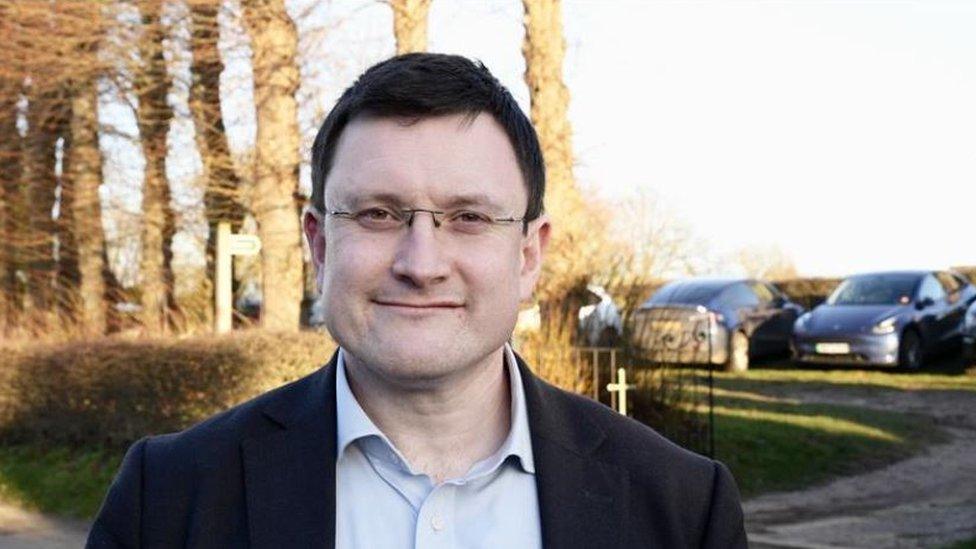
Jake Rigg, from National Grid's Electricity System Operator, said ahead of a private meeting in Friston that it was comparing all the available options in a study
Jake Rigg, from National Grid's Electricity System Operator division, said the authority was conducting an independent study to look at all options and "put some facts into the debate".
'Upgrade critical'
In a statement, National Grid disputed Fiennes' claims that an offshore solution would be cheaper, based on costs it published in 2023, and said an environmental impact assessment would be included in any plans.
"The existing electricity transmission network was built in the 1960s and was not designed to transport the clean, green, renewable energy from where it is generated out at sea, to homes and businesses across the country," the statement said.
"The Great Grid Upgrade is the largest overhaul of the grid in generations, and as electricity demand is set to double, it is a critical part of how the UK can lower energy bills, combat climate change, and reach net zero."
The Department for Energy Security and Net Zero said householders living near any new infrastructure could receive up to £1,000 off their electricity bills.
It said: "Offshore wind will play a key part in delivering the transition to net zero, but without the development of necessary networks onshore, this ambition cannot be achieved, threatening energy security and increasing costs for hard-working families."

Follow East of England news on Facebook, external, Instagram, external and X, external. Got a story? Email eastofenglandnews@bbc.co.uk, external or WhatsApp us on 0800 169 1830
- Published6 December 2023
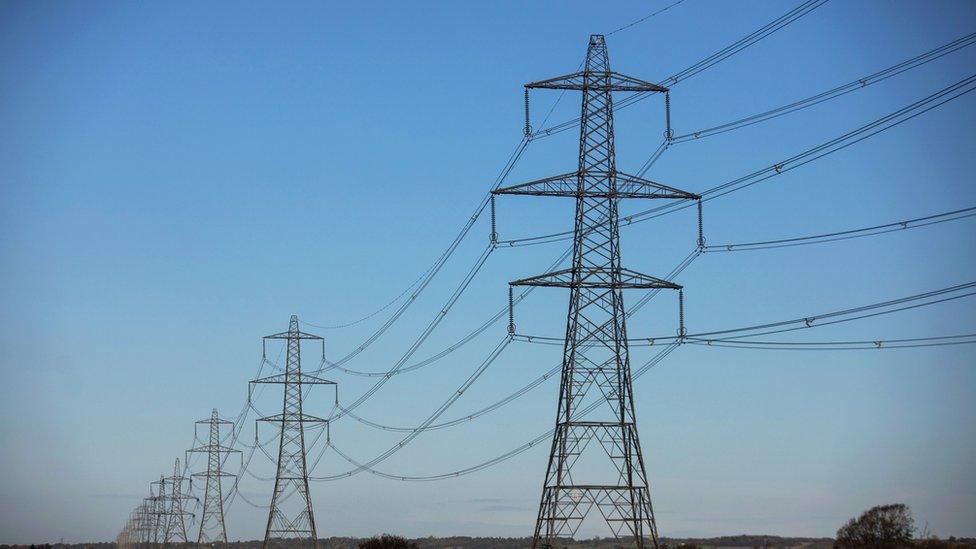
- Published26 November 2023
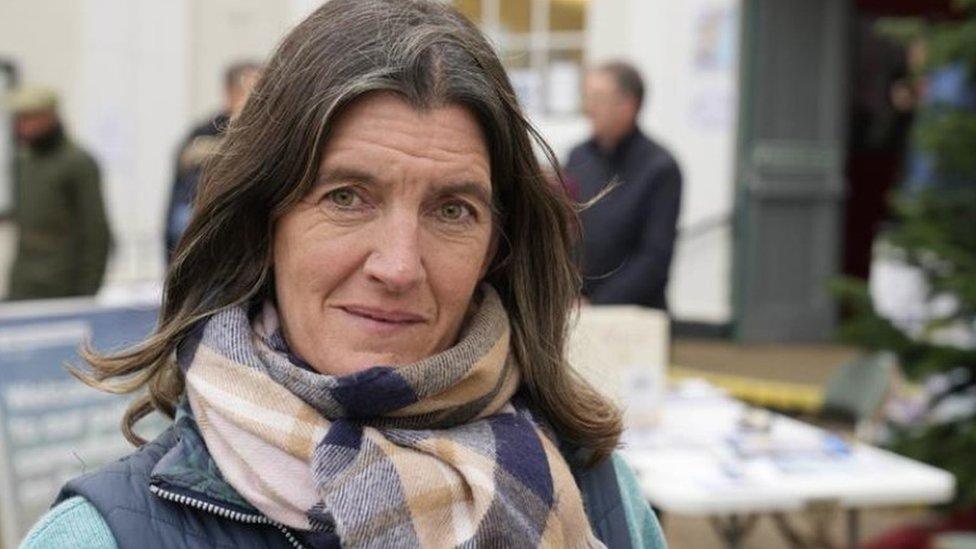
- Published21 November 2023

- Published9 November 2023
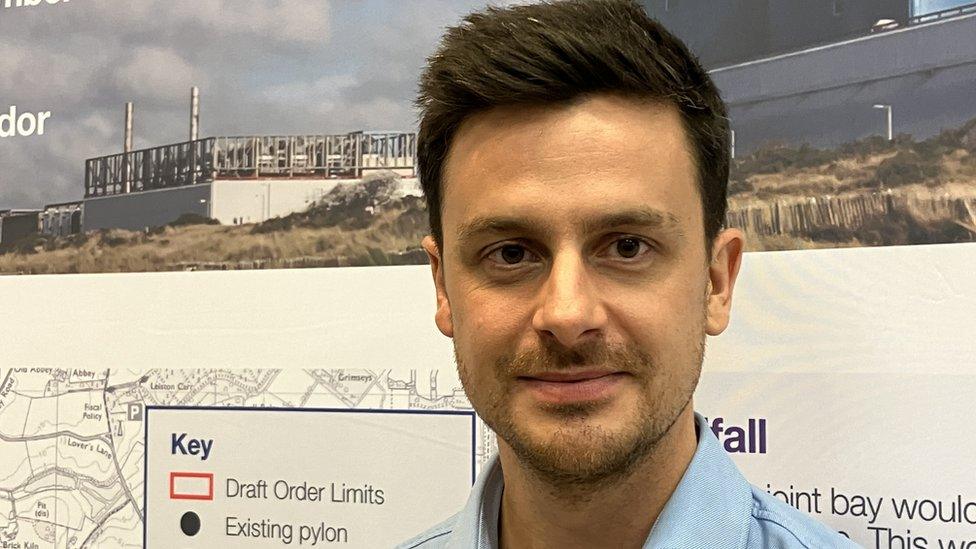
- Published30 September 2023
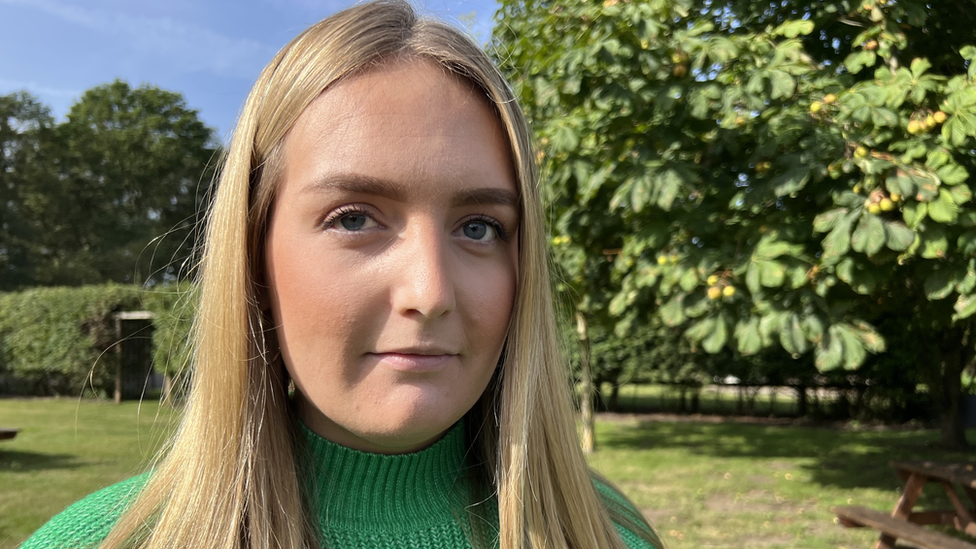
- Published27 June 2023
